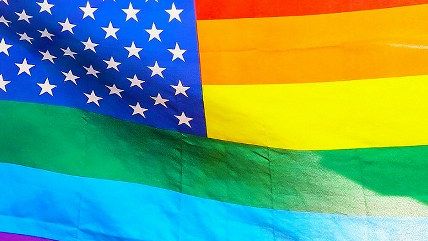Activists Attempt to Shut Down Gay Conversion Therapy with FTC Complaint
Is it censorship or a fight against false advertising?


Does a person have the right to tell another person they can cure that person of their homosexuality? Do they have the right to offer this therapy for money? Even though it probably doesn't work and lacks scientific support? Even though it's possibly self-destructive?
That's the conflict at the heart of the debate over gay "conversion" or "reparative" therapy, the increasingly maligned "treatment" that promises to help gay people suppress their homosexual urges. It's quackery and deserves to be dismissed. But does government need to be involved and therefore monitoring the types of subject matter therapists may discuss? Is that normal regulation to prevent harm or is it censorship?
Three activist groups, the Human Rights Campaign, the National Center for Lesbian Rights, and the Southern Poverty Law Center, have filed a complaint with the Federal Trade Commission (FTC) to try to shut down People Can Change, an organization that purports to help men "eliminate or minimize [their] sexualization of other men."
The groups' complaint is that advertising a treatment to reduce homosexual urges constitutes an "unfair, deceptive, and fraudulent business practice," which gives the FTC the authority to intervene and regulate. (read the complaint here)
Here's what's concerning about the groups pursuing this attempt at a solution. It's not that I feel conversion therapy is defendable. It's terrible, and while I've never personally been exposed to it, I've heard any number of awful stories from those who have either been pushed into it by parents or tried it themselves. The issue here is that these organizations are paternalistically intervening on behalf of fully consenting adults who are making choices (stupid choices, I would agree) they do not like, approve of, or think they will work.
This is not a case about minors being forced into therapy against their will. People Can Change's website appears to offer its service to adult men, and the complaint to the FTC doesn't seem to indicate any sort of coercion or forced participation. In fact, because this is a complaint to the FTC, and not a lawsuit, there are no plaintiffs or identifiable "victims." Certainly the organizations believe that People Can Change's customers are being harmed by the treatment, but individual cases are not mentioned in the complaint, because this effort is predicated on false advertising.
Perhaps I'd feel differently about the case if there were identifiable stories from victims. The complaint makes reference to an actual lawsuit against a different conversion organization, Jews Offering New Alternatives to Healing (JONAH) in New Jersey. In that case, there were identifiable victims who were able to point to the harms caused to them by conversion therapy. The plaintiffs won and shut the organization down.
That should be the correct, legal way to fight conversion therapy. If people are victimized as a result of the therapy and can prove it, they can sue. Take them for all that they're worth. But this FTC pursuit veers dangerously into using the government to police speech and particular forms of completely consensual therapy on the basis of what a majority of experts believe. And then, suddenly we're not allowed to make decisions for ourselves about our own well-being.
To put it another way: My opposition to the drug war is not because I think mind-altering drugs are necessarily good or harmless. I have seen them destroy lives. Rather, I place a very high value on allowing people control over what they do with their bodies as a necessary component of having a truly free society. And the same holds true with conversion therapy. I don't think this form of treatment is good, and I believe it can cause harm. But I do believe that consenting adults have the right to pursue it if that's what they want. I don't believe that the government has the authority to tell people on either side they can't do this just because it probably doesn't work. "Success" is not the threshold for liberty or a free society.


Show Comments (189)